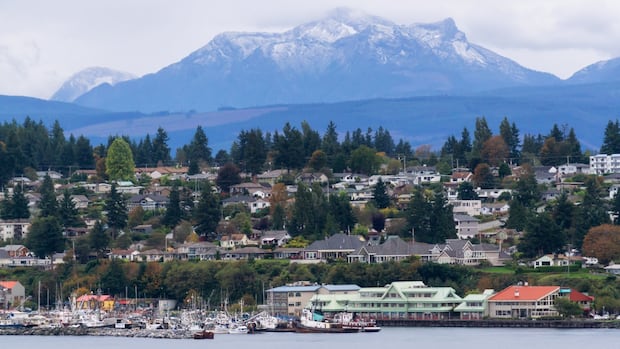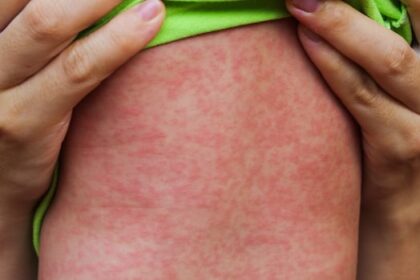British ColumbiaOfficials have issued a public warning after 11 people died of suspected drug overdoses in Campbell River, B.C., over a five-week span.Support worker says that both local and provincial leaders have to step up and help drug users in regionAkshay Kulkarni · CBC News · Posted: Oct 04, 2025 8:00 AM EDT | Last Updated: October 4RCMP in Campbell River, B.C., have issued a public safety warning after 11 suspected overdose deaths in just over a month. (EB Adventure Photography/Shutterstock)Officials have issued a public warning after 11 people died of suspected drug overdoses in Campbell River, B.C., in the last five weeks.According to the B.C. Coroners Service, the Greater Campbell River region recorded nine suspected overdose deaths over the first four months of the year, which is the most recent data on record — meaning 11 in five weeks alone would constitute a major uptick.In a statement on Wednesday, RCMP urged drug users to take precautions, saying the “sharp increase in overdose fatalities” was deeply concerning.A local support worker said the deaths were the result of political choices and drug prohibition.”The community is reeling. We are, in many, many ways, feeling hopeless and helpless,” said Sue Moen, co-ordinator for the Campbell River Community Action Team.”But it also identifies for us many of the things that we have been saying for many, many years … if both the government and the medical community is going to talk about this as a health problem, then they have to have evidence-based health solutions.”Moen says there should be an expansion of safer drug supply and more access to care, especially detox services and voluntary treatment services.The support worker said she personally knew eight of the people who died, and a number of factors were contributing to the spike in deaths in the Campbell River area.One of those, she said, was the closure of a drop-in centre and a community kitchen this past summer.Those two services helped locals build community and check in on each other, according to Moen.”The loss of those [spaces] means that people are more dispersed,” she said.”We are seeing a lot more hunger in the community, which is contributing to more ill health, which … when you combine that with the toxic drugs, the adverse reactions and overdoses are more severe.”WATCH | B.C. ends take-home safe supply program: B.C. ends practice of take-home safer supply drugsB.C. Health Minister Josie Osborne announced that people who rely on prescription opioids must now take those safer supply drugs under the supervision of a pharmacist. It comes after revelations the drugs were being diverted into the hands of organized criminals. As Katie DeRosa reports, critics say the move is long overdue.In addition to those local factors, Moen said recent changes to B.C.’s safer drug supply program — which state that drug users will have to ingest their safer drugs in view of a pharmacist — are making it difficult to access to safer drugs due to a lack of pharmacies in a small town like Campbell River.She argues that governments need to treat substance use disorder like the medical condition that it is, and urgently expand the access to safer drugs and more care.”For any other disease — cancer, diabetes, Parkinson’s — we would never dream of withholding the essential medications that those people need,” she said. “We would not punish them and use an enforcement model to try to manage their disease.”And yet, for … more than 100 years of prohibition, that is the tack that we have taken with people who use substances.”Officials say supply is volatileCampbell River RCMP spokesperson Const. Maury Tyre said the region’s drug supply was volatile, and it was unclear whether there was a single drug or contaminant that was causing the spike in deaths.”Until they actually get toxicology back from people, we don’t know the exact cause of the overdoses,” he told CBC News.On The Island5:59Drug poisoning alert – we spoke to a medical health officer from Island Health about the current overdose situation in Campbell RiverGregor Craigie spoke with Dr. Charmaine Enns, the medical health officer for North Island.Dr. Charmaine Enns, Island Health’s medical health officer for the north Island region, said that officials often saw cyclical spikes in overdose deaths due to the volatile toxic drug supply.She said that most of the population that was dying from toxic drugs were not accessing services like overdose prevention sites and drug checking services for a variety of reasons, including stigma against drug users.”Until we deal with this drug supply, we are not going to get in front of this, which means there is nothing we can do, probably, in terms of education or getting through to people,” she told Gregor Craigie, host of CBC’s On The Island.”We have to deal with the supply first and foremost.”ABOUT THE AUTHORAkshay Kulkarni is an award-winning journalist who has worked at CBC British Columbia since 2021. Based in Vancouver, he is most interested in data-driven stories. You can email him at akshay.kulkarni@cbc.ca.With files from On The Island and Maryse Zeidler
Public warning issued in Campbell River, B.C., after 11 suspected overdose deaths in 5 weeks











